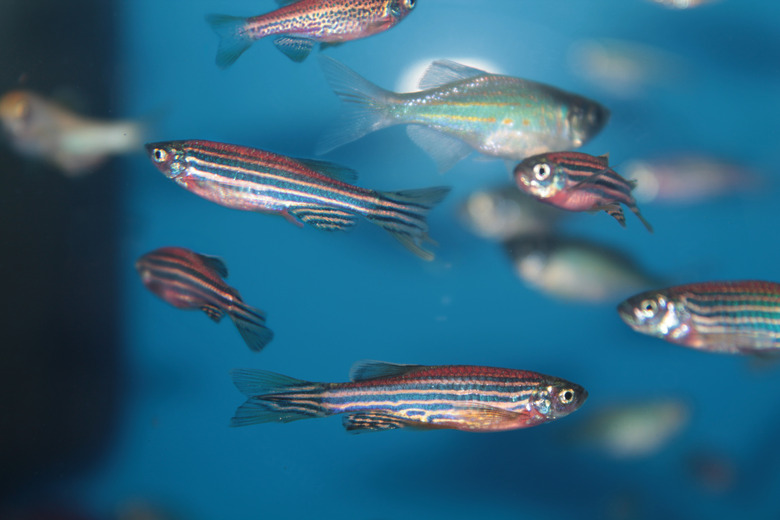Could These Tiny Fish Unlock The Secrets Of How Sleep Evolved?
Fish: They're just like us!
Well, maybe not just like us. Humans still haven't mastered that whole "live underwater" thing, and some fish (and at least one mermaid) sure wish they had our ability to walk around on land. But a new study out of Stanford has just suggested that zebra fish and humans have at least one thing in common: our sleep cycles.
What's more, those sleep patterns evolved at least 450 million years ago, back when most animals were still living in water. That means that learning more about the way fish and humans sleep could give us a lot more clues about the evolutionary point at which land animals and aquatic animals started to diverge into separate habitats.
That’s a lot of Info to be Gleaned Just from Some Sleepy Fish …
That's a lot of Info to be Gleaned Just from Some Sleepy Fish ...
It is! But even though it's something humans spend about a third of their lives doing, there's a lot about sleep that we don't know.
We know what a lack of it does to our brain (spoiler alert: very bad things), but we don't definitively know why our bodies developed that need for sleep. After all, it can seem counterintuitive: We want to believe our bodies evolved with maximum efficiency. But having to sleep for about eight hours per day wouldn't have been great for early human survival. It could leave people exposed to attacks, as well as cut down on the time they were able to feed, procreate, hunt or build.
We know even less about fish sleep. So scientists at Stanford decided to figure out how zebra fish do it. Why the zebra fish? They make good subjects for a few reasons: They're easy to care for, breed quickly and are inexpensive.
But most importantly for this study, scientists can see into their brains ... literally. Young zebra fish are transparent, so instead of having to hook up the fish to electrodes or do anything else more invasive, the scientists could stick the fish under a microscope and directly see activity such as heart rate, eye movements and muscle movements.
In that way, they quickly noticed that, similar to humans, the zebra fish have two sleep cycles. Humans go into a rapid eye movement, or REM cycle, which is the cycle of sleep in which the brain is most active – this is the part of sleep where you dream. We also have non-REM sleep, or dreamless sleep, where we're typically more still, with slower heart rates and lower blood pressure.
Scientists have observed other mammals and birds that also head into these two cycles when they catch their ZZZs. But they were surprised to see that the zebra fish also had two cycles very similar to REM and non-REM sleep. The data suggests that fish and humans could have more in common than previously thought.
So What Does that Mean?
So What Does that Mean?
There's a lot to unpack, and a lot more research to be done, but scientists are excited to dive into these findings further.
Learning more about the evolution of sleep could help scientists understand why our bodies developed the need in the first place. That, in turn, could help them to develop medicines that better help people suffering from insomnia and other sleep deprivation disorders.
Whatever comes of the research, one thing is for sure – whether you're a fish or a human, it's always important to get a full night's sleep.
Cite This Article
MLA
Dragani, Rachelle. "Could These Tiny Fish Unlock The Secrets Of How Sleep Evolved?" sciencing.com, https://www.sciencing.com/could-these-tiny-fish-unlock-the-secrets-of-how-sleep-evolved-13720158/. 22 July 2019.
APA
Dragani, Rachelle. (2019, July 22). Could These Tiny Fish Unlock The Secrets Of How Sleep Evolved?. sciencing.com. Retrieved from https://www.sciencing.com/could-these-tiny-fish-unlock-the-secrets-of-how-sleep-evolved-13720158/
Chicago
Dragani, Rachelle. Could These Tiny Fish Unlock The Secrets Of How Sleep Evolved? last modified March 24, 2022. https://www.sciencing.com/could-these-tiny-fish-unlock-the-secrets-of-how-sleep-evolved-13720158/
